

We are delighted to report that the class 104 is back in traffic following a period in intensive care for the protracted replacement of a failed wheel bearing. After a successful test run to the Glyndyfrdwy outer home signal and back, with the hybrid class 127/108 for company, during the evening of 24/05/25 it has played its part in operating passenger services.
The following picture shows it at Corwen on 05/06/25 when it formed a 4-car unit together with the Wickham class 109...
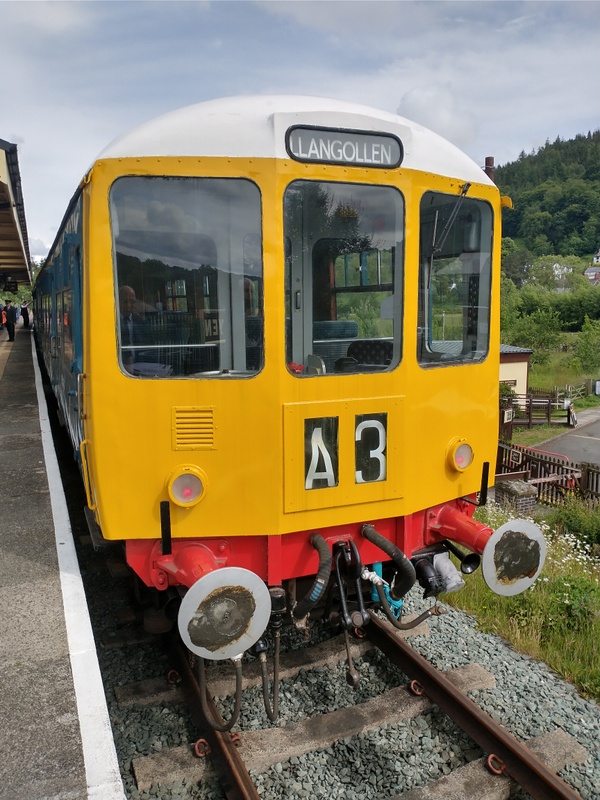
Observant readers may notice that the 'A' in the headcode blind looks rather crumpled. That was the result of the wind getting under the driver's desk and making the driver wonder why he could hear a noise that sounded like fluttering paper!
On 22/05/25 the hybrid class 127/108 formed a 4-car with the Wickham class 109 but only until the class 127 power car misbehaved and had to be sent back to the depot, leaving the Wickham to handle the rest of the service, and try to cope with a large number of passengers, all by itself.
The class 127's hydraulic transmission has two modes of operation - torque converter drive up to approximately 40-45 mph and direct drive at higher speeds. There are no prizes for spotting that direct drive is redundant on a railway with a line speed of 25mph but, on this particular day, the class 127 repeatedly tried to engage it at low speed, thereby causing some serious problems. Once it was back at the shed, our engineers quickly diagnosed and rectified the fault.
During June, the pattern of requests from the Railway for 2-car and 4-car trains was such that crews would ordinarily have had a lot of coupling and uncoupling to do at the start and/or end of days. However, the availability of units enabled us to use either the 4-car class 109+104 or the 2-car hybrid class 127/108 as appropriate. The following pictures show the hybrid class 127/108 at Corwen on 10/06/25...
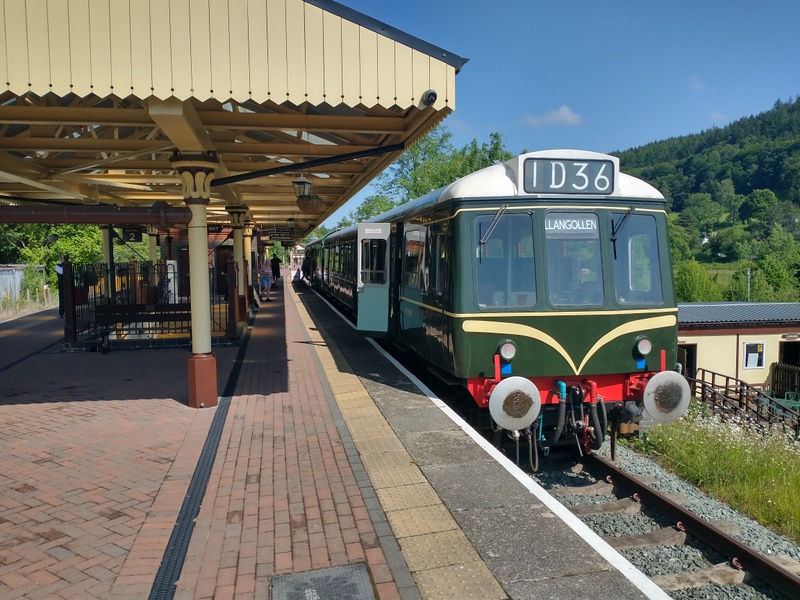
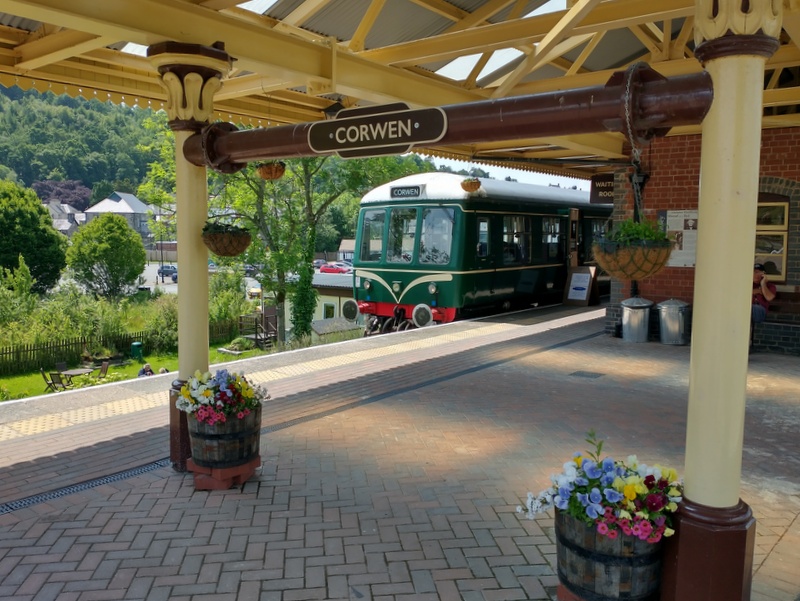
Restoration work included the installation of more wall panels and beading...
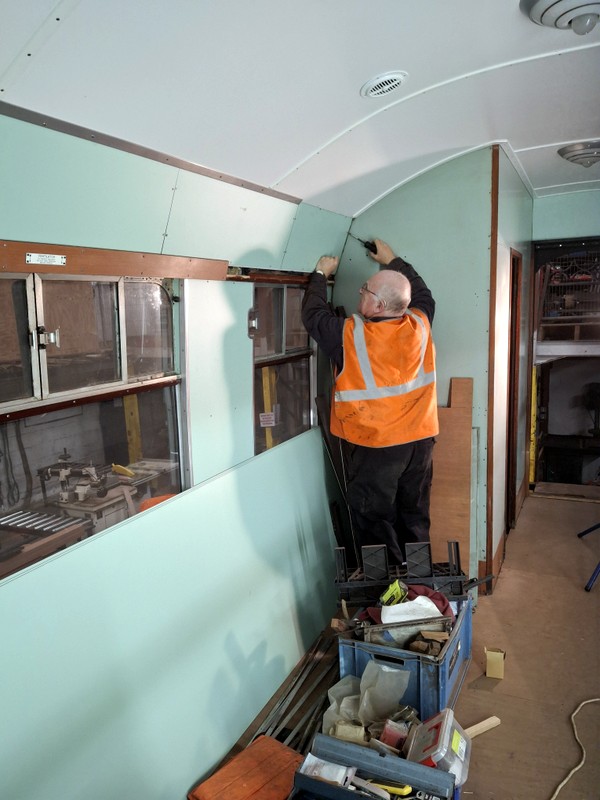
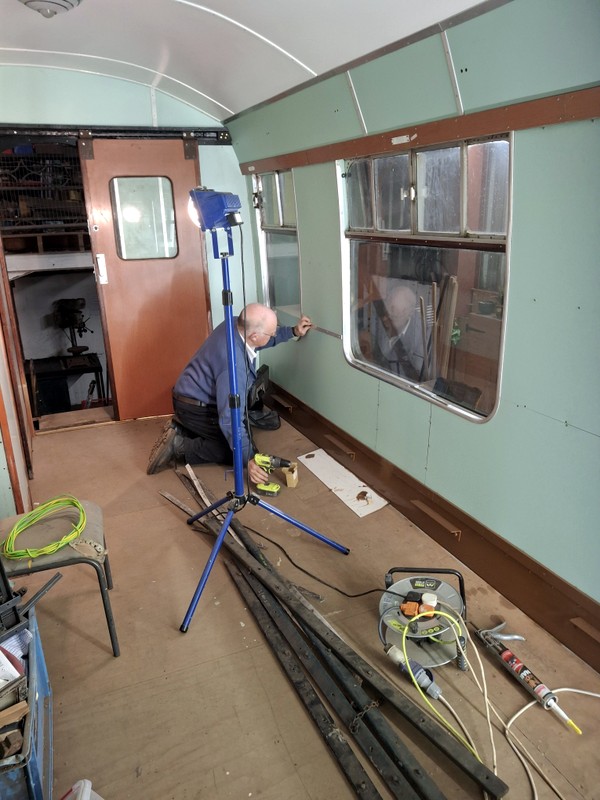
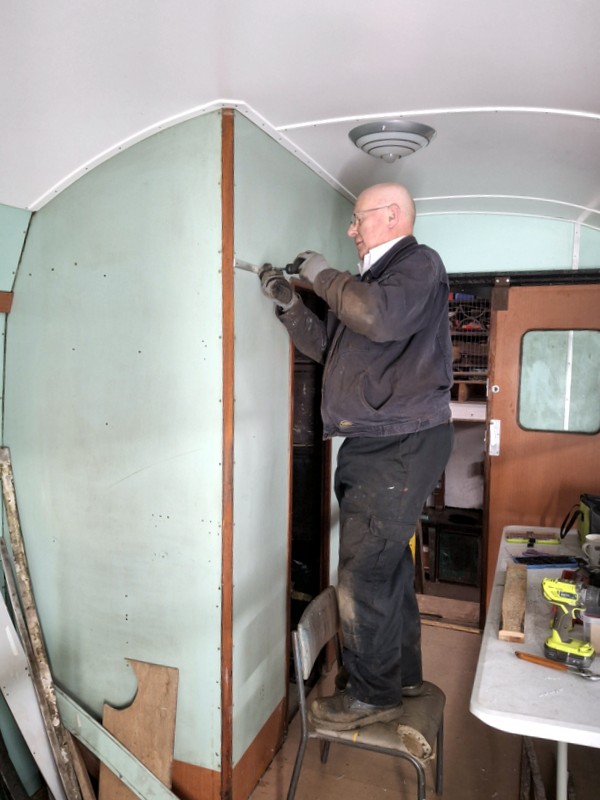
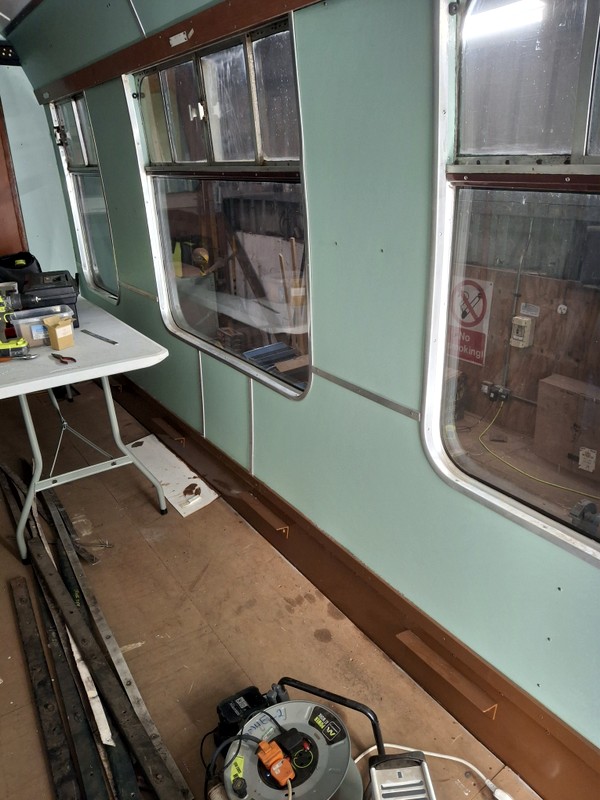
There was also cause for celebration for members of the team when the 'problem' luggage rack in the middle section of the driver's side was finally persuaded to fit together and fit into the required space...
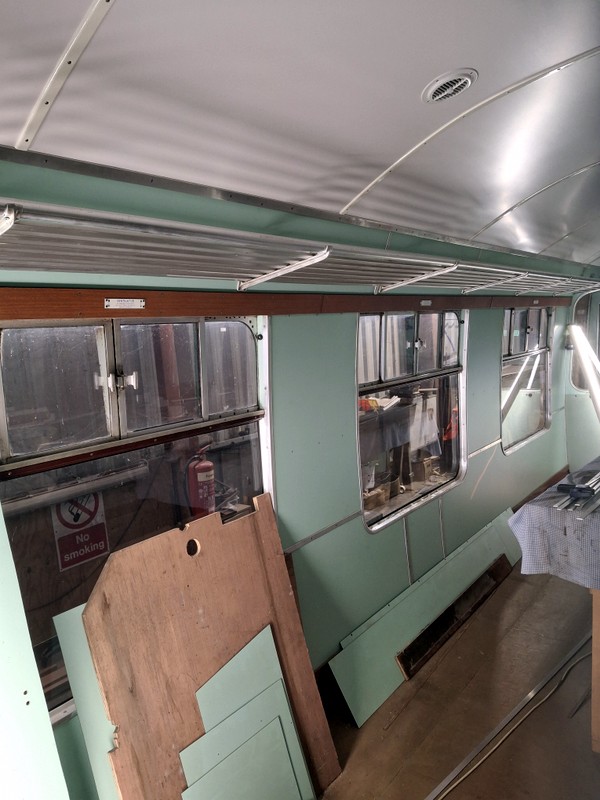
Said luggage rack was taken out at the time of the asbestos removal many years ago and it was anticipated that it would be relatively easy to re-install it but it wasn't. After several failed attempts, much pondering and a dose of ingenuity, the problem was solved by removing approximately 4mm from each end of the central section even though that should not have been necessary. Perhaps the vehicle and/or the luggage rack were affected by eddies in the space-time continuum during the intervening fifteen years? All that is needed now is some rivetting to finish it off - once the rivets can be found.
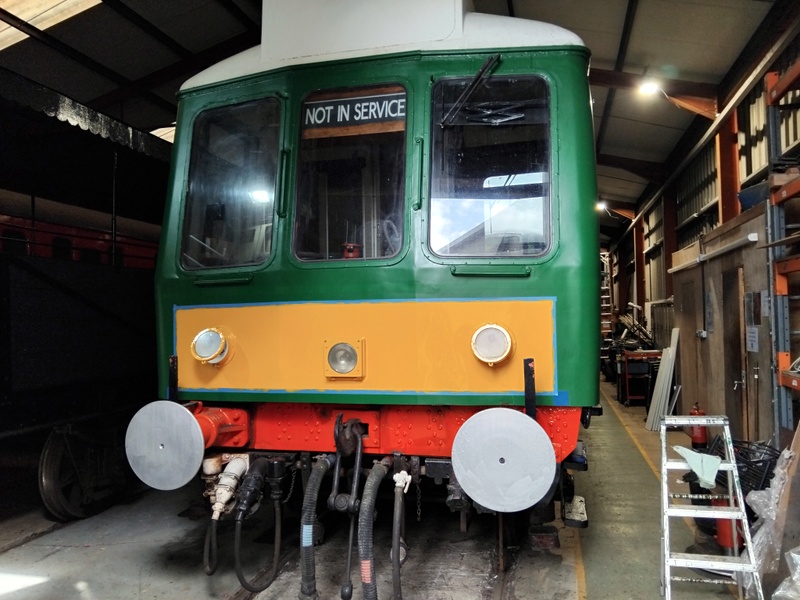
...and following, the treatment...
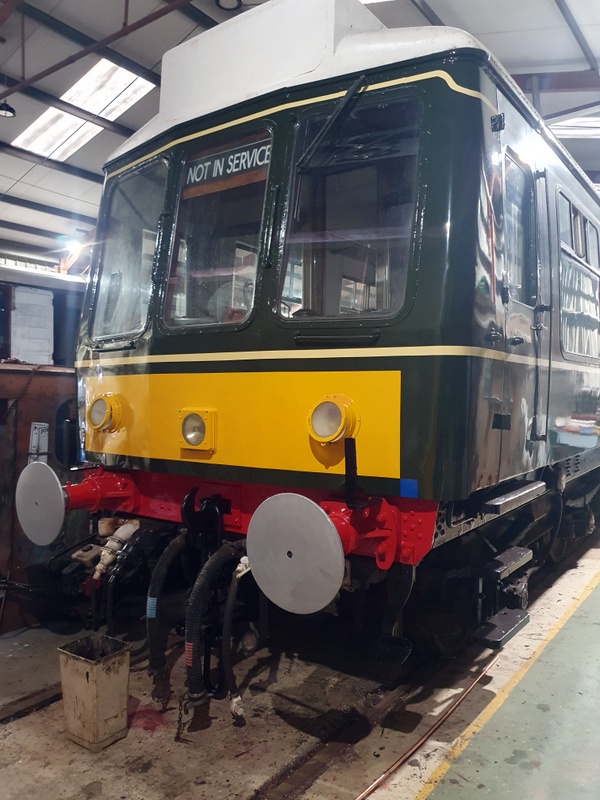
It now needs some varnish and some detailing work to complete the repaint.
The following picture shows the cab of the power car undergoing similar treatment...
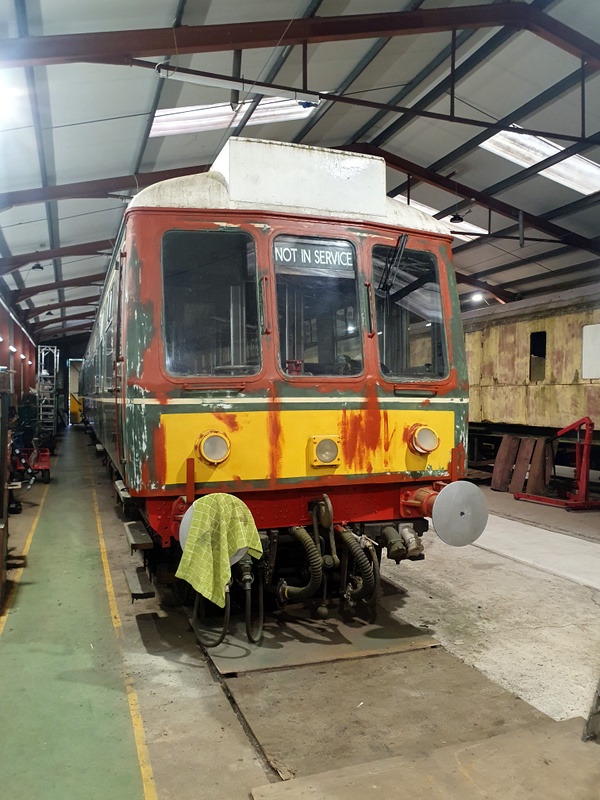
Various other things were spruced up including one of the engines, seen here in before and after shots...
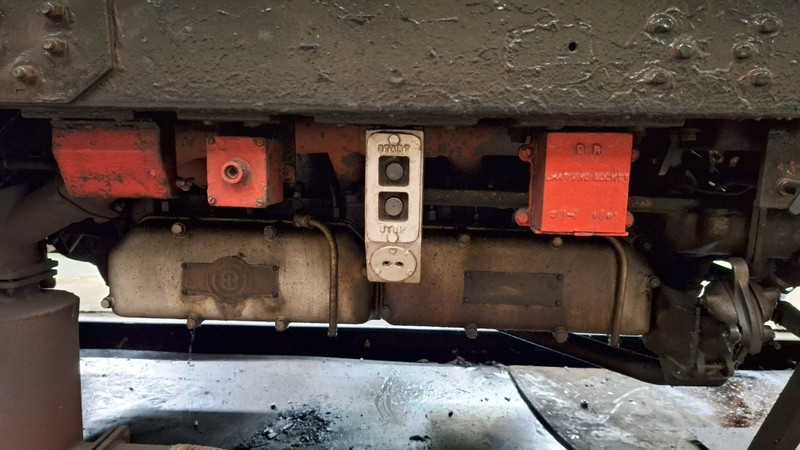
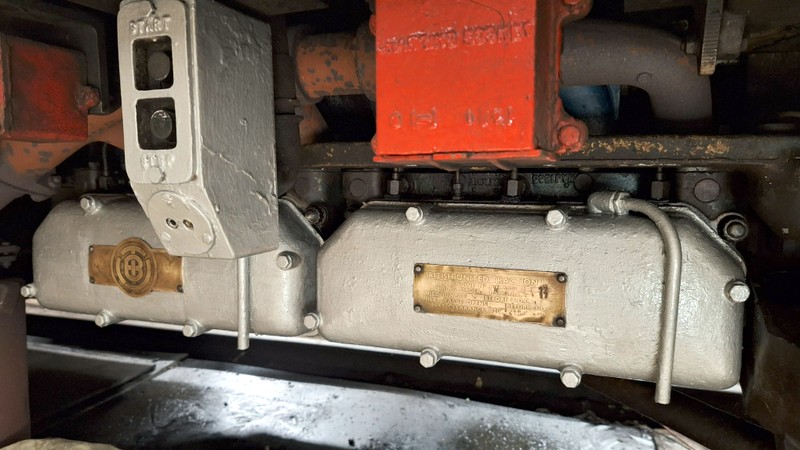
Hybrid Class 127/108 51618/56223
The class 108 trailer car (56223) became due for its 'M' exam which takes place once every six years and is the largest exam that we do. The vehicle has now been on the line for fifteen years and covered almost twenty thousand miles even though the original loan request was a case of, "Can we please borrow it for a couple of years while we finish the Cravens?".
The start of each exam session is traditionally signalled by the arrival on the scene of our red trolley laden with all of the necessary tools, consumables, documentation etc. except for the ones that we've forgotten...
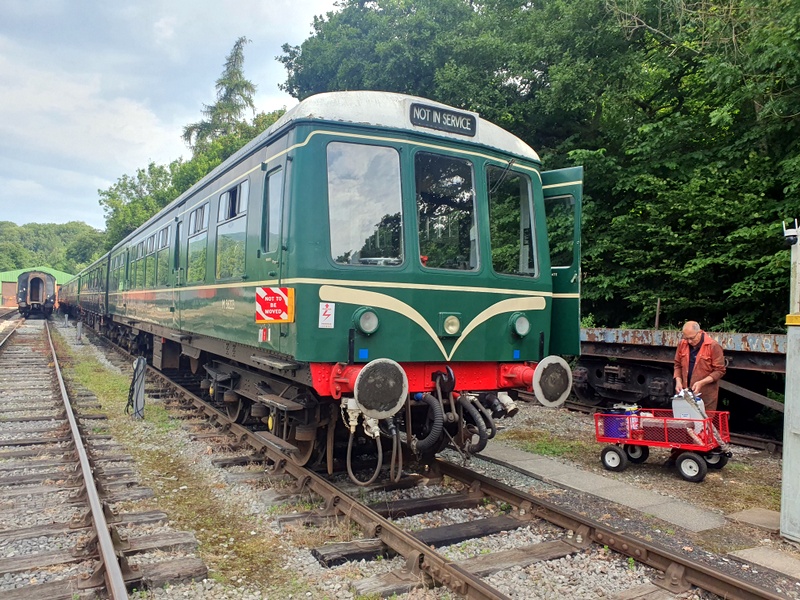
In order to make it easier to carry out the necessary checks at the back of the vehicle it was temporarily split from the class 127 power car...
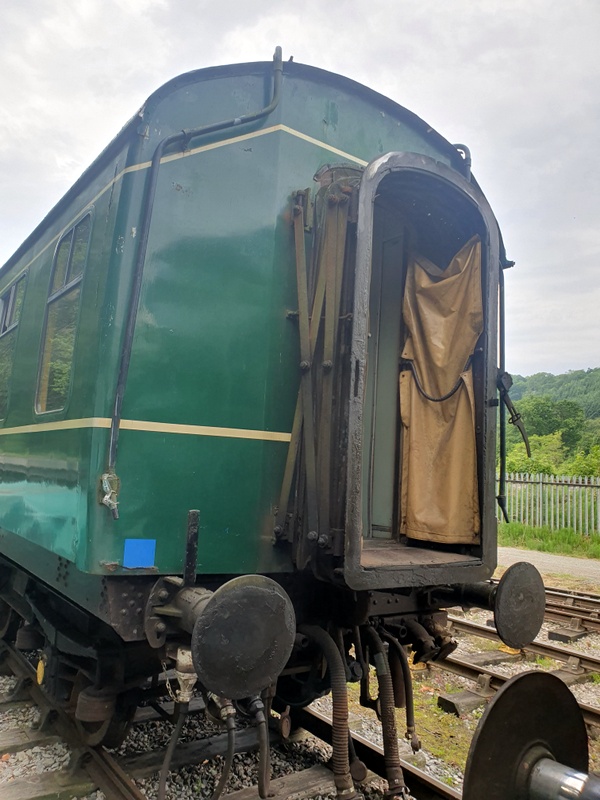
Even on a trailer car, which clearly has far fewer components than a power car, there are more than fifty jobs to sign off, some of which are much more involved than others. A selection of them is shown below...
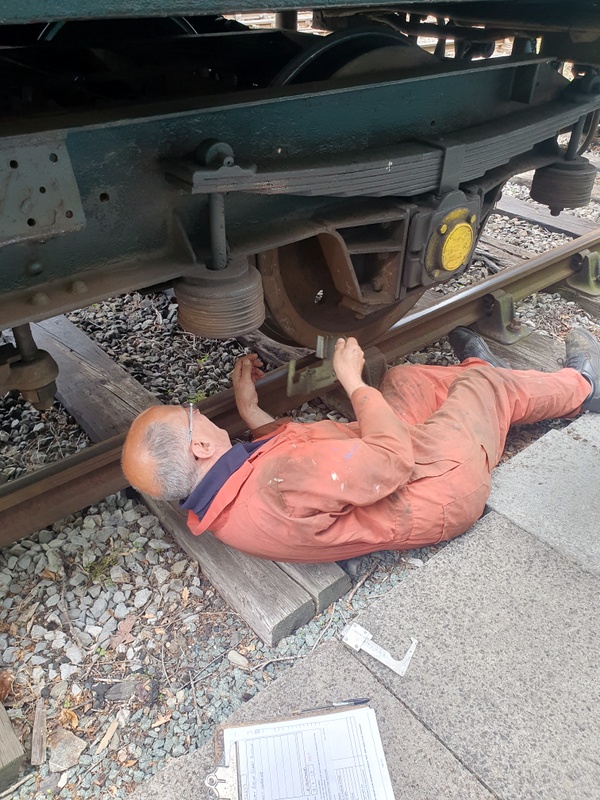
Wheelset measurements: tyre thickness, flange height and flange thickness. For our level of usage, wear is (fortunately) very little.
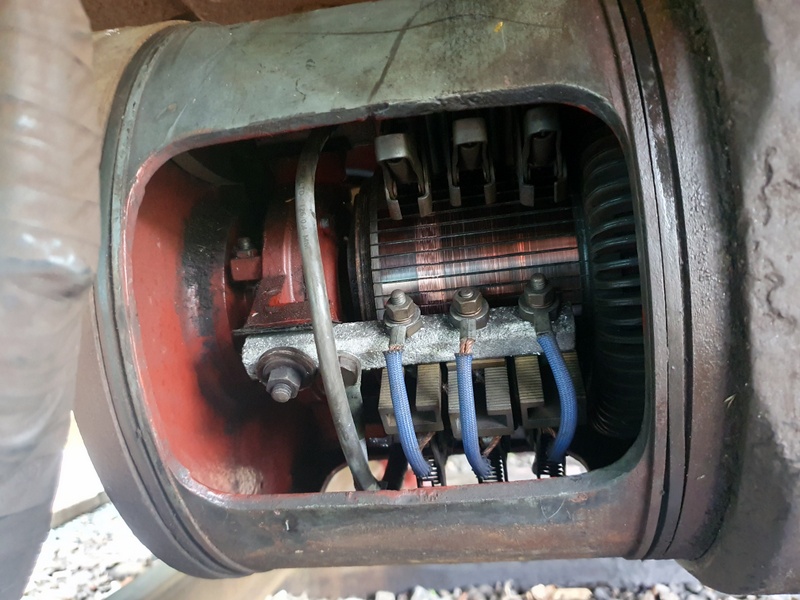
Inside the dynamo to inspect the innards. The copper segments of the commutator are in fair condition, no signs of arcing or significant wear.
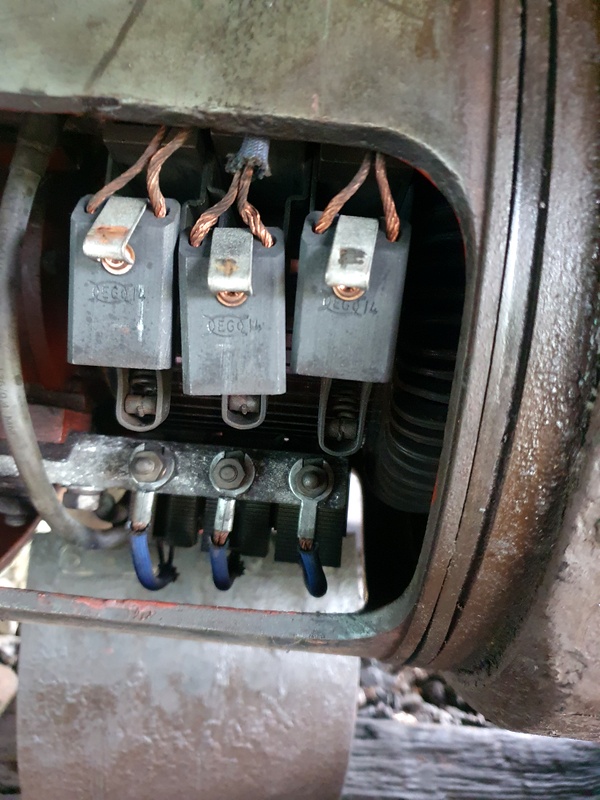
Carbon brushes removed to check those for wear too.
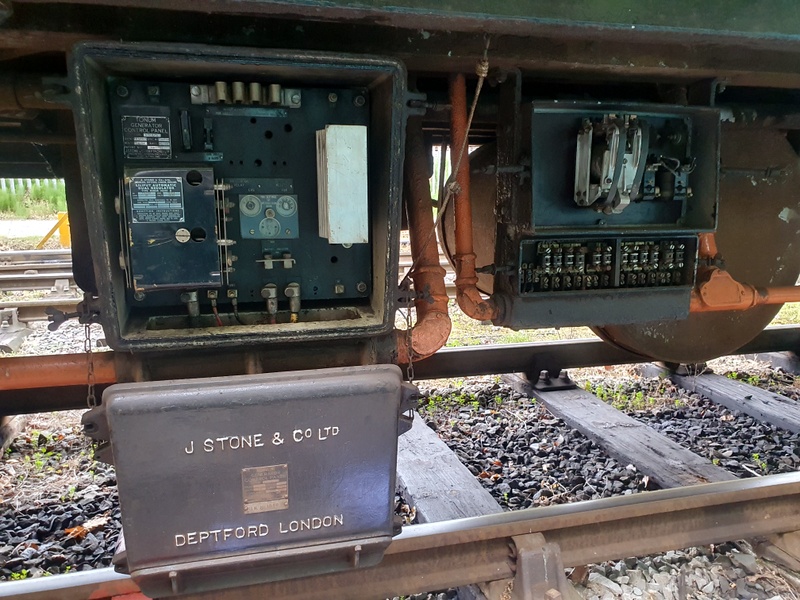
Checking some of the electrical 'gubbins' underneath. Dynamo regulator (left), light switch (top right), fuses (below). The regulator uses carbon piles (an electrical term, not a medical one!) to regulate the dynamo's output.
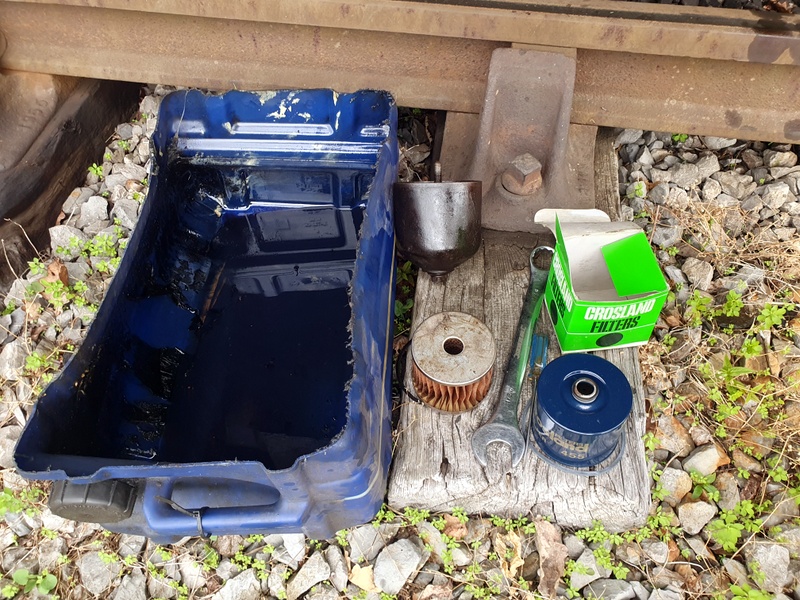
Heater fuel filter change.
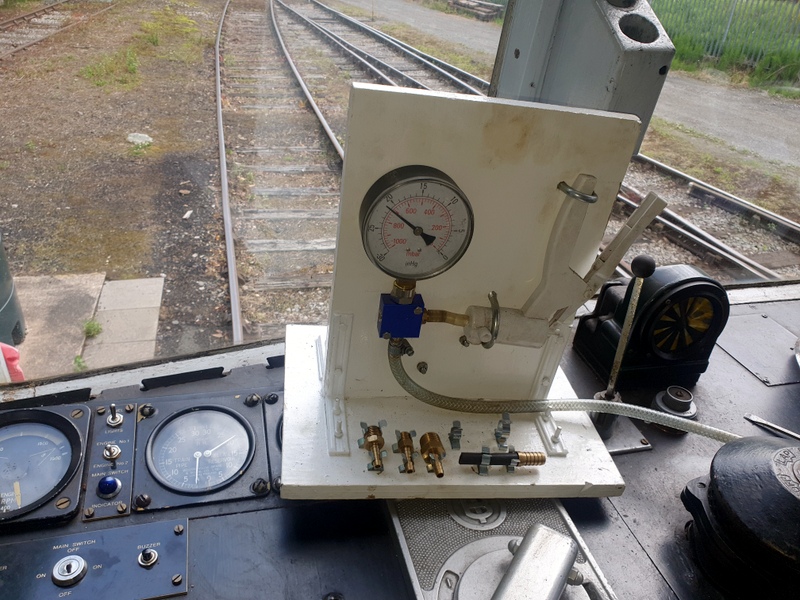
Checking the vacuum gauges for calibration against a master gauge. Another little test jig produced in-house.
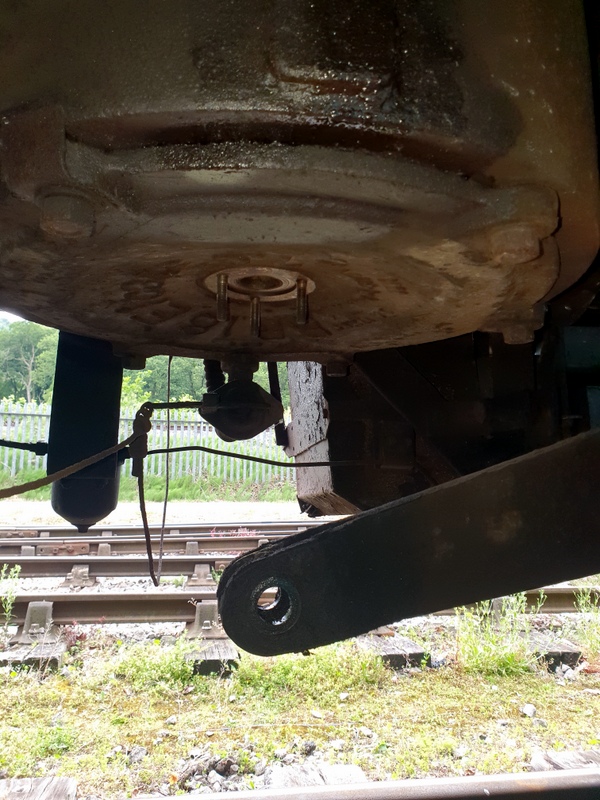
One brake cylinder was leaking a little (the brakes leak on, rather than off!). The piston rod had to come out for investigation
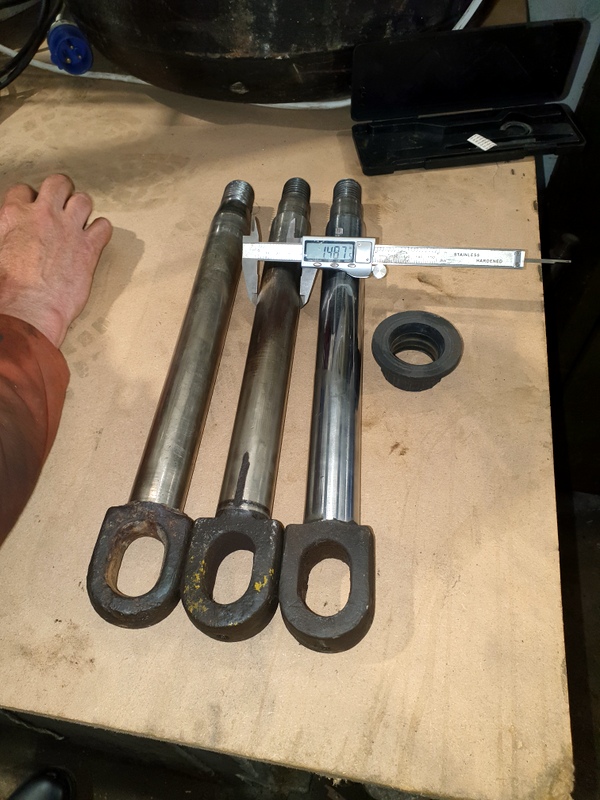
Several decades of use have worn the piston rod too much to seal properly, so a spare had to be found.
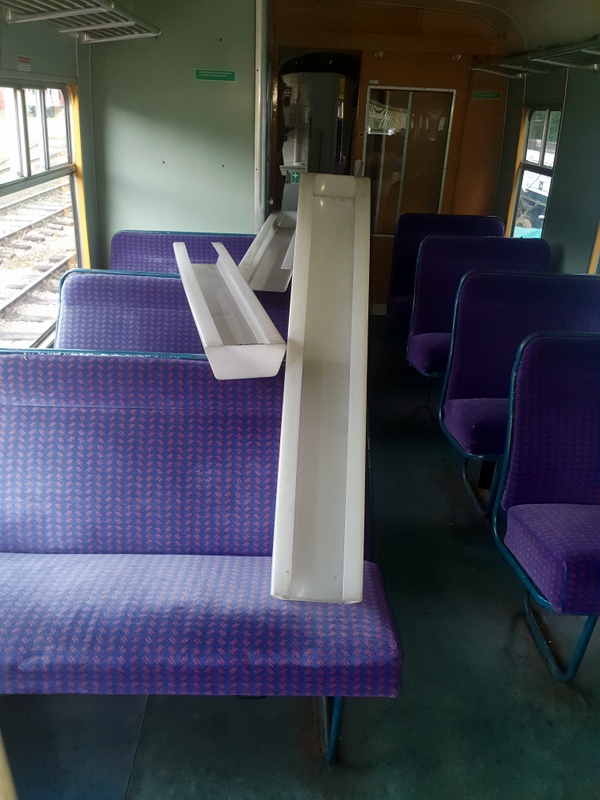
The light fittings came down for a proper clean. Plenty of dead flies to clean out!
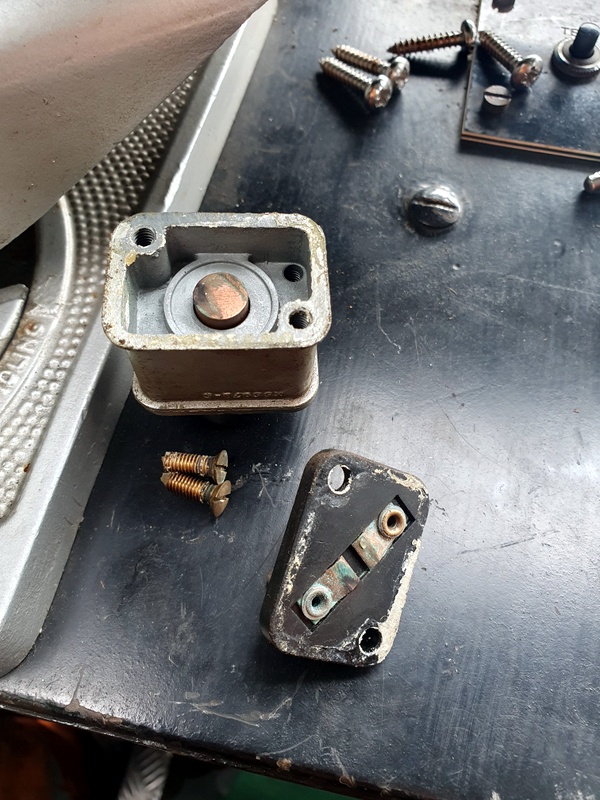
Engine start button booked as intermittent. The contacts were all corroded, but cleaned up well enough with some wet-and-dry paper for another decade or two.
Thanks to Allen Chatwood, John Joyce, Andy Lowe, Graham Parkin and Martin Plumb for supplying the pictures that were used in this edition.